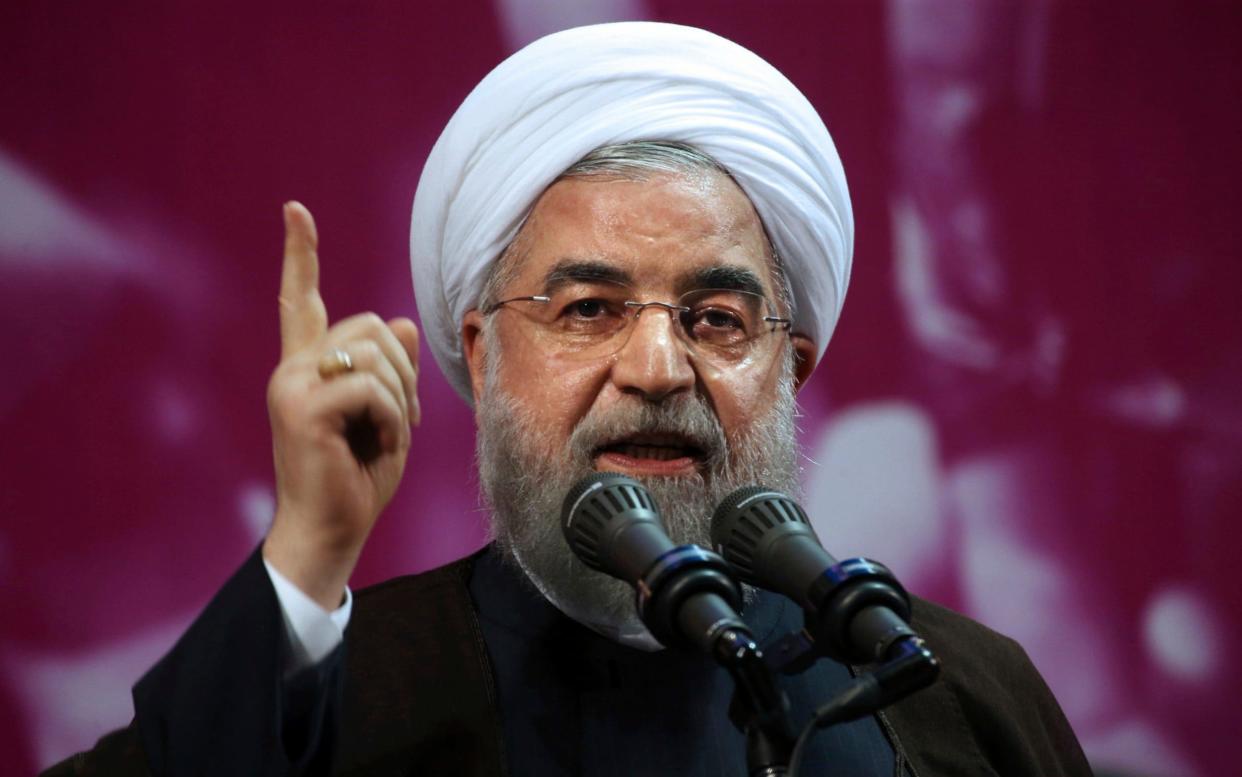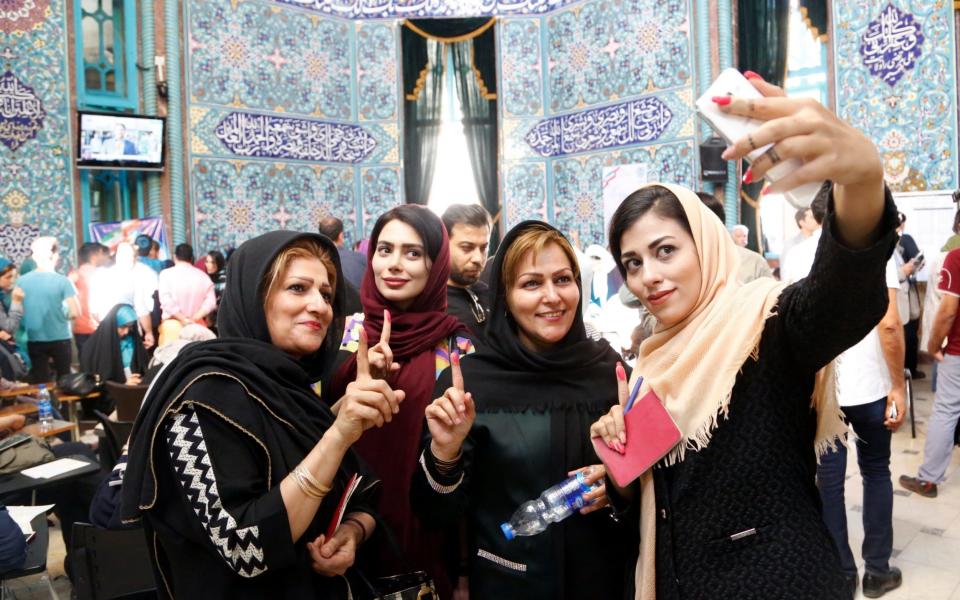Iran has 'chosen path of engagement' says President Hassan Rouhani as he wins landslide re-election over hardliner

Iran has chosen the “path of engagement with the world” and rejected isolation and extremism, President Hassan Rouhani said Saturday after winning re-election in a landslide victory over a hardline opponent.
The reformist president won an unexpectedly decisive 57 per cent of the vote, giving him a strong mandate to try to ease Iran’s economic isolation, improve relations with Europe, and offer some new freedoms to young Iranians.
"The message of our people has been very clearly expressed. The Iranian people have chosen the path of engagement with the world, far from extremism," Mr Rouhani said in his victory speech.
ملت بزرگ ایران، پیروز #انتخابات شمایید؛ خاضعانه در برابر شما سر تعظیم فرود میآورم. به عهدم با شما وفادار خواهم ماند. pic.twitter.com/v3J0n1m59A
— حسن روحانی (@Rouhani_ir) May 20, 2017
Mr Rouhani soundly defeated his opponent Ebrahim Raisi, a 56-year-old former judge who is a disciple of Iran’s Supreme Leader Ayatollah Khamenei and supports a more confrontational approach to the West.
The 68-year-old Mr Rouhani claimed victory as Donald Trump and America’s Arab allies gathered in Riyadh for a summit focused partly on confronting Iran. The newly re-elected Iranian leader warned that his country wanted “to live in peace and in friendship with the rest of the world” but would “not accept any threat or humiliation”.
Turnout in the election was high at 71 per cent - significantly above recent British or US elections - and voting had to be extended by several hours on Friday night to accommodate the massive lines at polling stations.
Mr Rouhani’s victory was powered by a huge turnout of his supporters in more affluent urban areas, many of whom waited in line for hours to vote and then took triumphant selfies afterwards.

"We won. We did what we should do for our country. Now it is Rouhani's turn to keep his promises," said Arash Geranmayeh, a 29-year-old coffeeshop owner in Tehran
The election debate centred around the aftermath of the Iranian nuclear agreement, which was struck in the 2015 between Tehran and six world powers led by the Obama administration.
Mr Rouhani portrayed the agreement as a victory for Iran and a chance to open up the country’s isolated economy to foreign investors. Mr Raisi argued the nuclear deal had done little to benefit the poor and ran on a populist pledge to triple welfare payments.
With a second term now secure, Mr Rouhani is likely to push ahead with encouraging European businesses to come to Iran. His victory may also lead to incremental increases in personal freedoms in Iran, like more tolerance for unwed couples and fewer restrictions on internet access.
His hopes of increasing engagement with the world may, however, be frustrated by Mr Trump who has promised to take a more hawkish line against Iran.
While Mr Rouhani is a relative moderate, Iran remains a harshly authoritarian country where dissent is stifled and civil liberties are trampled. All the candidates in the presidential election had to be approved by the Supreme Leader, meaning voters were only able to choose between candidates of a limited ideological range.
The Supreme Leader will have the ultimate say over whether Mr Rouhani’s reforms can go ahead and how quickly, but 77-year-old Ayatollah Khamenei has shown some flexibility in recent years in responding to demands for change from the public.

There was palpable relief from European foreign ministers at the election result, as many EU officials feared that having both Donald Trump and the hawkish Mr Raisi in office would increase the likelihood of a military confrontation between Iran and the US.
“Iranians passionately took part in political life of their country. I congratulate President Hassan Rouhani for the strong mandate received,” said Federica Mogherini, the EU foreign policy chief.
Bashar al-Assad, the Syrian dictator whose regime receives significant military support from Iran, was one of the first leaders to congratulate Mr Rouhani. Vladimir Putin, the Russian president, also sent congratulations.
During Mr Rouhani’s term in office, Iran has become deeply involved in the war in Syria, as well as fighting against the Islamic State (Isil) in Iraq and supporting Shia rebels in Yemen.
It is not clear how much of Iran’s military adventurism abroad is determined by Mr Rouhani and how much is the decision of Iran’s powerful Revolutionary Guard and the ayatollah.
Iran is a bitter regional rival of Saudi Arabia and Javad Zarif, the Iranian foreign minister, used the high turnout to mock Mr Trump’s meeting in Riyadh with a coalition of autocratic Arab states that do not have elections.
“We derive stability not from ‘coalitions’, but from our people, who - unlike many - do vote. Iranians must be respected & are ready to engage,” Mr Zarif said.
We derive stability not from "coalitions", but from our people, who -unlike many- do vote. Iranians must be respected & are ready to engage.
— Javad Zarif (@JZarif) May 20, 2017

